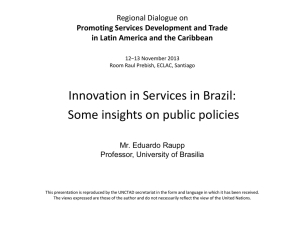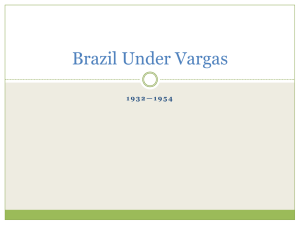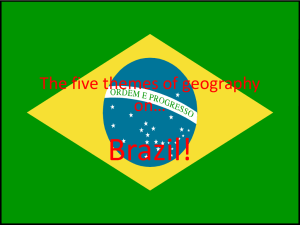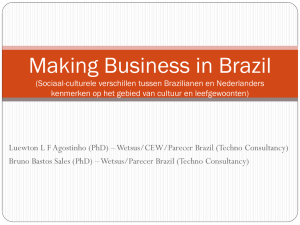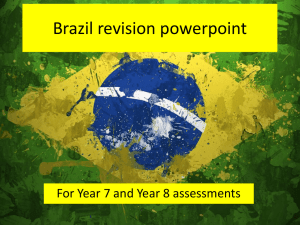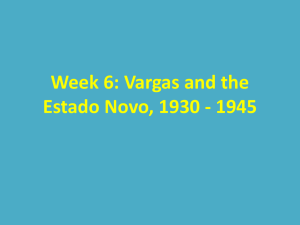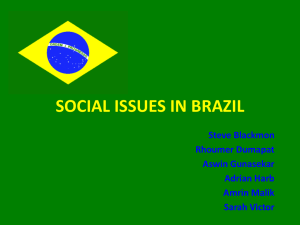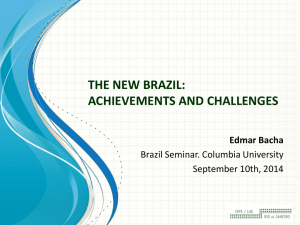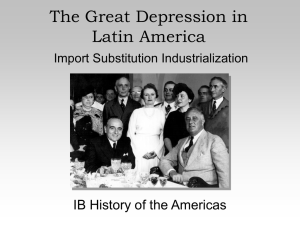Brazil During the First Republic
advertisement
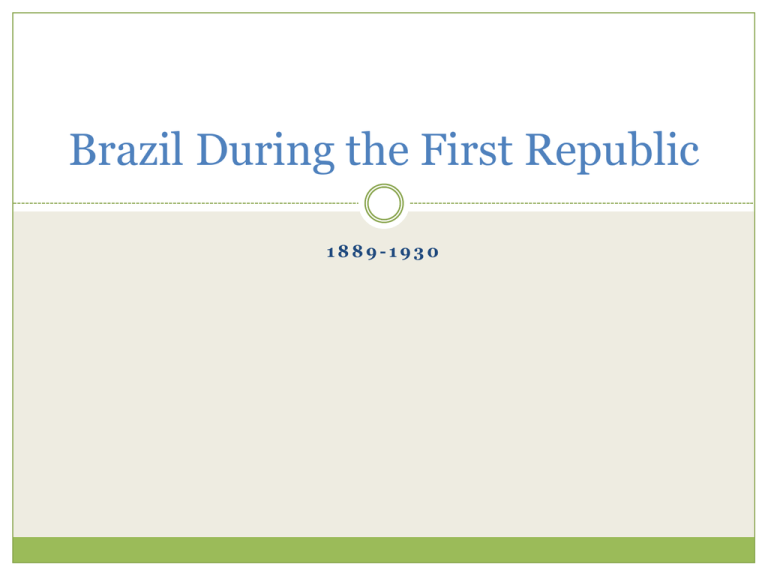
Brazil During the First Republic 1889-1930 IB Objectives Latin America’s responses to the Depression: either G Vargas or the Concordancia in Argentina; Import Substitution Industrialization (ISI) or any relevant case study of a Latin American country Lecture Outline I. II. III. IV. V. VI. Government Economy WWI Social Issues Great Depression Getulio Vargas Government “United States of Brazil” States were guaranteed sovereignty with a weak central government The state of Sao Paulo dominated colonial Brazil and the only way Brazil could be held together at independence was by giving the state autonomy. Led to a wide economic gap between the few wealthy states and the majority of the states that were stuck in poverty. Economy Amazonian rubber boom began to fade Heightened dependence on coffee which required loans from the US and British banks WWI October 1917 after German submarine attacks, Brazil declared war on Germany. Brazil’s major contribution to the war effort was supplies, but its navy did help the British patrol the S. Atlantic. Brazil doubled its industrial production during the war. Food production was so neglected that Brazil had to import 80% of its grain. Social Issues Malnutrition, disease, and lack of sanitation and medical facilities limited Brazilians’ average life span in 1920 to 28 years. In 1920, more than 64% of the population over 15 was illiterate. In 1930 only 3% of the population voted. States were ruled by political bosses, coroneis (colonels). Great Depression By 1930 foreign loans had produced an external debt of $1.2 billion and Brazil was required to pay 1/3 of the national budget to service the debt. Coffee prices fell from 22.5 to 8 cents a pound between 1929 and 1931. Getulio Vargas Minas Gerais ranchers joined with other groups to form the Liberal Alliance led by Getulio Vargas. Vargas lost the election in March 1930 which sparked protests. The continuing unrest caused the military to overthrow the government and put Vargas in power.

